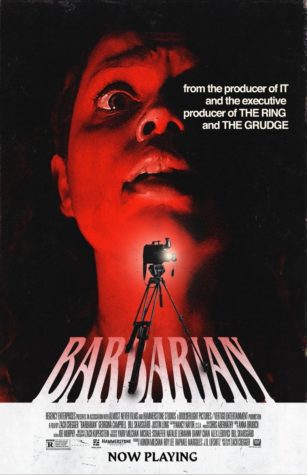The Ultimate Angsty, Heartbreaking, Emotional Rollercoaster of an Album Debut
A Review of Olivia Rodrigo’s SOUR
On May 21st, 2021, up-and-coming teenage singer-songwriter Olivia Rodrigo released her first album. She poured her heart out on each and every track, revolving around her break-up with Disney co-star Joshua Bassett.
It is self-evident why SOUR became so quickly beloved among today’s youth. They, or perhaps we, have skyrocketed this girl into sudden musical success that very few people have ever experienced. It’s musical success on a similar level to Avril Lavigne in 2001, Taylor Swift in 2008, Lorde in 2013, and Billie Eilish in 2019.
But arguably, none of them have truly had the success story Rodrigo has. For example, she was the first person to achieve two Billboard Hot 100 #1 hits from the same album prior to its release (and not just out of teen pop stars; she’s the only one). Her first single “drivers license” with her current label Geffen Records (she had a few promotional singles with the Walt Disney label) debuted at #1 and “good 4 u” did as well, with “deja vu” debuting at #8.
The simple truth is, the passionate music-listening public has made Olivia Rodrigo this successful for a reason. That fact shouldn’t be neglected. Specifically, how she used her authentic songwriting talent to embrace her adolescence to the fullest, explains how she instantly became the voice of the 2021 teenage girl.
“I think it’s kind of a repeat of Lorde, but probably subtly different because I think Lorde was much more focused on how jaded our generation is,” Sophomore Carol Caesar comments. “But Olivia is more focused on the emotional side of things–how we’re all just total messes. [SOUR] is very distinctly teenage. The way every relationship becomes the most important thing in your life. And then when it ends, you react in such an incredibly melodramatic way because of hormones.”
When Olivia states in an interview that she “believes there are therapeutic benefits to songwriting” and she “goes to a piano before she calls a friend,” it absolutely shows. She is brave for performing her deeply personal intense emotions on SOUR, yet she isn’t obnoxious to listen to because in her lyrics, she’s always proving her self-awareness and willingness to improve.
This album is a pinnacle of character development. You get to enjoy Rodrigo’s unfiltered rage, depression, anxiety, bitterness, and eventual healing and resolution. You’re listening to the journey of a protagonist who is obviously not perfect, and you may even get annoyed with her at times if you can’t relate to her, but you root for her all the way nonetheless. This is because you’ve entered her vibrant world and get the privilege to explore the deepest depths of her beautifully turbulent adolescent heart. That is why it’s incredibly easy to step into her shoes, which explains the grown men singing “drivers license” in unison on Saturday Night Live.
“brutal,” “drivers license,” “deja vu,” “jealousy, jealousy,” and “favorite crime” know Olivia Rodrigo and her producer’s strengths well and utilize them as best as they can, and end up as SOUR’s best tracks.
Producer Dan Nigro, for the most part, did an excellent job at creating instrumentals to fit each track’s mood. They often crescendo into chaos as the emotions intensify, which makes all the difference. Tracks that do this are often much stronger than tracks that don’t. Also, this album’s unique creative textures in the production immerse you into the song’s setting. A striking example is the dramatic stormy winds of “traitor,” which make for a truly rich listening experience.
Meanwhile, “1 step forward, 3 steps back” is easily its weakest song because it can’t live up to the rest of the album’s standards. But that doesn’t mean it’s necessarily bad; it only comes close to mediocrity when compared relatively like this. The production is sweet but too static and minimalistic, and the melody dull all the way through.
This was likely an artistic choice so the listener would focus only on the lyrics. But that just means it’s trying to be poetry more than music, while most other tracks prove they really don’t need to resort to that. But poetically profound introspective songwriting is still poetically profound introspective songwriting, even if it’s the weakest of its album. That’s how consistently strong SOUR is.
The heart of this album came from a little girl sobbing into her piano. If this graduating high school senior can embrace her adolescent angst in such a poignant, resonating way that ends up healing her in more ways than one, perhaps you too can spin your despair into gold.

![Rodrigo, O. (2021). SOUR [Recorded by O. Rodrigo]. SOUR [CD]. Salt Lake City, Utah: Geffen Records. (2020-2021).](https://lrhslightningflash.com/wp-content/uploads/2021/06/Camila-Hidalgo-CC-900x900.jpg)


